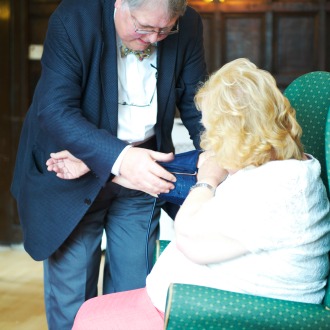Patient satisfaction with GP services remains high with more than 85% describing their overall experience of their GP surgery as good, results from a major national survey show.
The Ipsos MORI poll of more than 900,000 patients also reveals 86% are able to get an appointment with their GP and only 16% of patients have to wait more than a week.
The majority of patients – 92% – who manage to get an appointment say it is at a ‘convenient’ time, and three quarters of patients say the same about their practice’s opening hours, with only 19% saying the opening hours are inconvenient. This is despite the Government’s continued push towards extended access, including providing £50m central funding to GP practices across England, in order to ‘suit busy lifestyles’.
The survey also shows that the majority of patients who struggle to get an appointment at a convenient time keep on trying until they get one, with only 9% choosing to go to A&E or a walk-in centre instead.
The survey casts doubt on recent claims by health ministers that telehealth could solve access problems and missed appointments by making GPs more convenient, as just 6% of patients say they want to speak with a GP over the phone – compared to 77% who want to see their GP in person.
Overall 93% of patients have ‘trust and confidence’ in their GP however patient satisfaction has declined slightly (1-4%) across the board since June 2013. Satisfaction with out-of-hours services shows the biggest decline, with 66% of patients describing their experience of out-of-hours GP services as good – a drop of 4 per cent since June last year.
GPC negotiator and Cornwall GP Dr Beth McCarron-Nash said GPs and their staff should be applauded for delivering overwhelming satisfaction while seeing an additional 40 million patients each year amidst a ‘tsunami of problems’.
Dr McCarron –Nash told Pulse: ‘We’re delivering much more with less and yet still patient’s express, on the whole their overwhelming satisfaction with GP services. That’s a real achievement and it should be applauded.’
The slight decline in satisfaction was perhaps not surprising as ‘something had to give’, she added. ‘I think we will see patients having to wait longer, because we are struggling to match resource and services to the increasing demand. And I think as a result – unless we do see a significant shift into core funding and support for general practices to deliver services to patients – then something’s going to have to give.’
‘General practice is facing a tsunami of problems and needs urgently rectifying; we need to secure sustainable resource in to practices so that we can continue to deliver high quality services for patients.’
NHS England’s head of primary care commissioning and York GP, Dr David Geddes, agreed the figures are a testament to GPs’ ‘hard work’, but continuing downward trends needed to be recognised.
Dr Geddes said: ‘Overall, these results show that the majority of patients are positive about their GP services, which is testament to the hard work of GPs and their staff. But we need to recognise the continuing trend in what patients are telling us about access to services, particularly out of hours.”
In recent months both the RCGP and BMA have launched campaigns to raise awareness of the pressures on general practice, and calling for increased funding. And Professor Nigel Mathers, RCGP honorary secretary, said he hoped that politicans would ‘take note’ of the survey results that highlighted some patients are struggling to get an appointment when they want one.
He said: “We hope politicians act on our calls for general practice to receive 11% of the NHS budget by 2017. This would allow us to recruit more GPs and offer more services and appointments for patients, so that we are able to give them the care that they need and deserve, when they want it.”

















